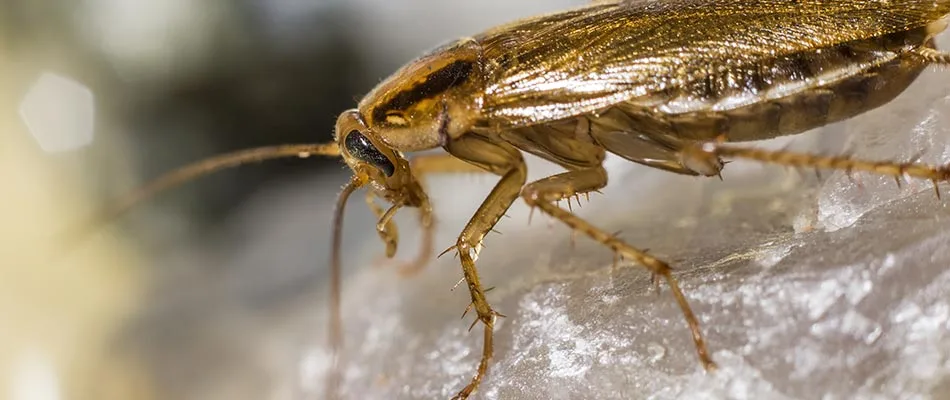A Break Down of the Different Kinds of Parasite Control Solutions
In the world of bug control, a wide range of techniques exist to attend to and combat the existence of unwanted creatures. From the traditional usage of chemical pesticides to more innovative organic control services, each method uses unique benefits and restrictions. As we navigate through the varied landscape of pest control solutions, understanding the complexities of each method ends up being vital in establishing the most effective strategy. Remain tuned as we discover the nuanced globe of bug control methods and find how each kind plays an unique function in protecting our environments.
Chemical Pesticides

One of the main advantages of chemical pesticides is their capacity to supply instant relief from pest problems. When applied correctly, these pesticides can promptly remove insects, stopping additional damage to crops, structures, or human health. In addition, chemical pesticides been available in various kinds such as sprays, fumigants, and lures, making them functional and ideal for various bug control requirements.
Nonetheless, it is necessary to make use of chemical pesticides with caution as a result of their possible damaging results on the atmosphere and non-target species. Improper application or overuse of these chemicals can lead to contamination, injury to useful pests, and resistance advancement in bug populaces. It is essential to follow security standards and policies when making use of chemical pesticides for parasite control.
Biological Control Approaches

There are two primary kinds of biological control: timeless and augmentative. Classic biological control involves presenting natural enemies from the insect's native array to regulate its population. On the other hand, augmentative organic control entails releasing big numbers of natural enemies to lower bug populaces rapidly.
One advantage of biological control is its lasting performance. When developed, all-natural opponents can help manage pest populations continuously without the requirement for duplicated applications of chemicals. Additionally, biological control is commonly much more cost-efficient and can assist minimize pesticide resistance in insect populaces gradually. Overall, biological control methods provide a sustainable and environmentally pleasant remedy to pest monitoring.

Mechanical Insect Control
Mechanical insect control includes the physical manipulation or removal of parasites to handle their populations efficiently. This approach is typically utilized together with various other bug control strategies for thorough bug monitoring. One usual example of mechanical pest websites control is using traps to catch rats or insects. These traps can be established up in tactical locations where insects are known to dwell, helping to lower their numbers.
An additional mechanical approach is using obstacles such as webs, fencings, or screens to obstruct parasites from getting in specific areas. By physically avoiding bugs from accessing a place, the chance of invasions or damages can be considerably minimized. Furthermore, hands-on approaches like handpicking pests off plants or frameworks can be efficient for smaller-scale infestations.
While mechanical insect control techniques can be labor-intensive, they offer a non-chemical choice that can be eco-friendly and sustainable. By targeting bugs directly, mechanical control techniques can help maintain parasite populaces in check without counting on pesticides.
All-natural Remedies
Utilizing natural my blog treatments for parasite control provides a environment-friendly and sustainable strategy to managing pest populaces without resorting to chemical interventions. All-natural treatments involve utilizing compounds acquired from plants, minerals, or other normally taking place resources to prevent or remove insects.
In addition, important oils such as tea tree oil or neem oil have insecticidal residential properties that can effectively manage bugs while being secure for the environment. pest control fresno. An additional all-natural remedy is presenting helpful pests like ladybugs or praying mantises to your garden to exploit harmful pests. By integrating these natural options right into pest management strategies, people can lower their dependence on synthetic chemicals and promote a much healthier, more well balanced ecological community
Integrated Insect Administration
Integrated Bug Monitoring (IPM) is a thorough strategy that integrates different approaches to properly regulate pest populations while reducing dangers to human wellness and the environment. IPM involves the assimilation of multiple pest control methods such as biological control, environment adjustment, alteration of social practices, and making use of immune plant ranges. By using a mix of these strategies, IPM intends to check over here reduce reliance on chemical pesticides, which can have negative impacts on communities and human wellness.
One key facet of IPM is the emphasis on prevention. By implementing actions to avoid parasite problems before they take place, such as keeping appropriate sanitation and sealing entry points, the need for responsive parasite control procedures is minimized. Surveillance and routine assessments play a critical role in IPM, permitting early detection of pest concerns and prompt treatment.
Conclusion
Finally, the various types of insect control options provide a series of choices for successfully managing pest infestations. Chemical chemicals supply fast obliteration yet might have ecological threats. Organic control techniques use all-natural predators to manage parasites. Mechanical insect control includes physical obstacles or catches. Natural remedies use safe alternatives. Integrated Bug Monitoring integrates multiple methods for a holistic strategy to pest control. Each approach has its own benefits and drawbacks, and choosing one of the most appropriate option depends on the details parasite issue at hand.
Chemical pesticides are generally used in bug control to efficiently eliminate a large range of insects and various other pests.Mechanical parasite control entails the physical manipulation or removal of insects to handle their populaces effectively.Utilizing all-natural treatments for pest control offers a environmentally friendly and sustainable strategy to handling insect populations without resorting to chemical interventions.Integrated Bug Administration (IPM) is a thorough method that incorporates different approaches to successfully control pest populations while reducing dangers to human health and the environment.In verdict, the various kinds of bug control solutions use a range of choices for properly taking care of insect problems.